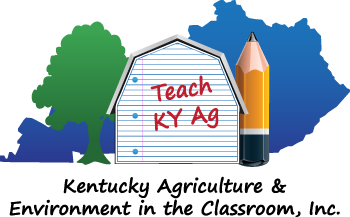Mobile Science Activity Centers
The Kentucky Department of Agriculture Mobile Science Activity Centers are trailers with ten interactive workstations for a classroom of students to conduct activities and investigations related to agriculture and the environment.
All materials and supplies to conduct the activities are provided. Examples of activities are making Biodegradable Corn Plastic, Ice Cream in a Bag, Gluup, and Soy Lip Balm. These activities make the connection between the agricultural source to commonly used products.
All activities align with Scientific Inquiry in Kentucky's Education Standards. The target grade levels are 4th and 5th grades. Activities are available, however, for primary grade levels.
Participating teachers must complete a pre-visit packet before each visit. Cost is $200 per day or $500 for the three-day maximum per school.
This program is administered and staffed by the Kentucky Department of Agriculture.
Cost: $200 per day or $500 for 3 consecutive days.




